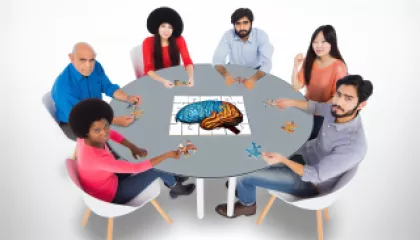Metai ne tik eina, jie mus moko. Kaip Monika Jasaitis, aš įsitikinusi, kad kiekvienas išgyventas metas, kiekviena patirtis yra tarsi paslėptas lobis, kurį atradus galima atrasti naujų gyvenimo spalvų. Mano specializacija – tai santykių pabaigos keliamų iššūkių sprendimas, žaismo terapija ir edukacinė psichologija. Nors mano profesionalaus kelio pradžia nėra tokia ilga, vos dveji metai, tačiau per šį laiką aš sukaupiau neįkainojamą patirtį ir atradau savo pašaukimą – padėti žmonėms atrasti save ir gyventi pilnavertiškai.
Mano darbo metodai nėra įprasti. Tikiu, kad kūrybiškumas yra raktas į sielos gelmes, todėl savo sesijose naudoju žaismo terapiją kaip priemonę atskleisti tai, kas dažnai lieka nepasakyta. Žaisdami, mes galime išreikšti savo vidinius jausmus, baimės ir troškimus būdu, kuris kartais yra veiksmingesnis nei žodžiai. Mano tikslas yra suteikti saugią erdvę, kurioje galėtumėte atrasti savo išraiškos būdą ir per tai – naujas gyvenimo perspektyvas.
Kita mano aistra – edukacinė psichologija. Suprantu, kad mokymasis yra gyvenimo dalis, bet kartais šis kelias tampa sudėtingas dėl įvairių emocinių blokadų ar patiriamų iššūkių. Turiu gebėjimą matyti už problemos esančias galimybes ir kartu ieškome būdų, kaip šias kliūtis paversti savo stiprybe.
Gyvenimo permainos, ypač santykių pabaigos, kelia didžiulių iššūkių. Aš čia, kad padėčiau jums peržengti šį slenkstį su supratimu, užuojauta ir kūrybiniais metodais, kurie padeda atgaivinti vidinę jėgą ir viltį. Kartu mes galime atrasti, kaip iš naujo surasti gyvenimo džiaugsmą ir tikėjimą savimi.
Mano tikėjimas yra paprastas – kiekvienas iš mūsų gali rasti būdą įveikti sunkumus ir išaugti iš patiriamų iššūkių stipresni bei turtingesni naujomis patirtimis. Tegul kūrybiškumas tampa mūsų kelrodžiu per šias keliones, o aš džiaugsiuosi galėdama būti šalia ir palaikyti kiekviename jūsų žingsnyje.

